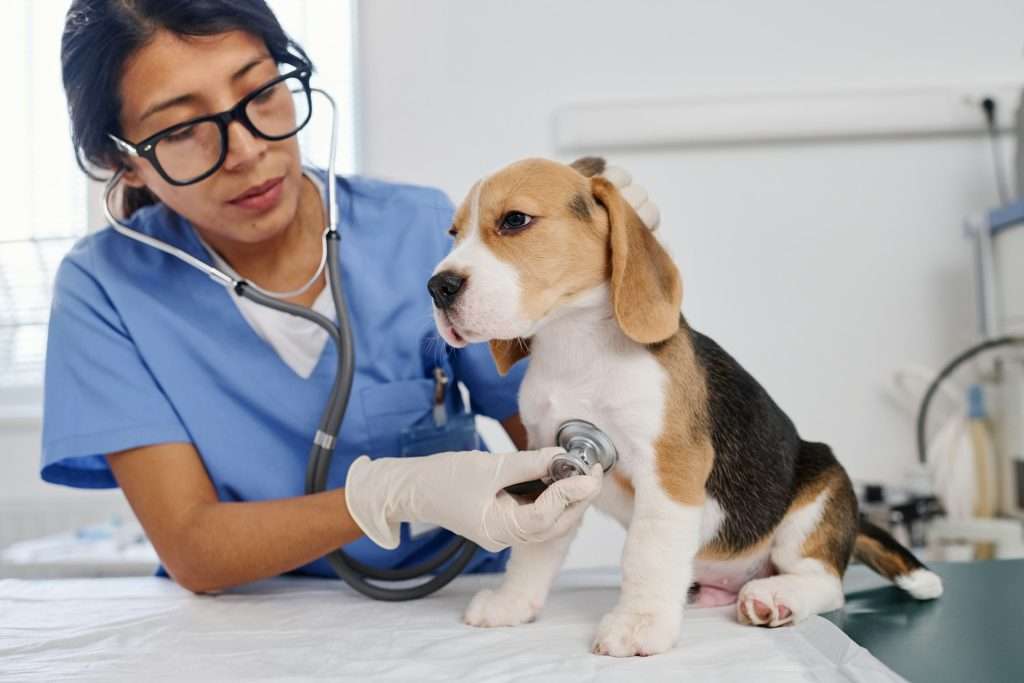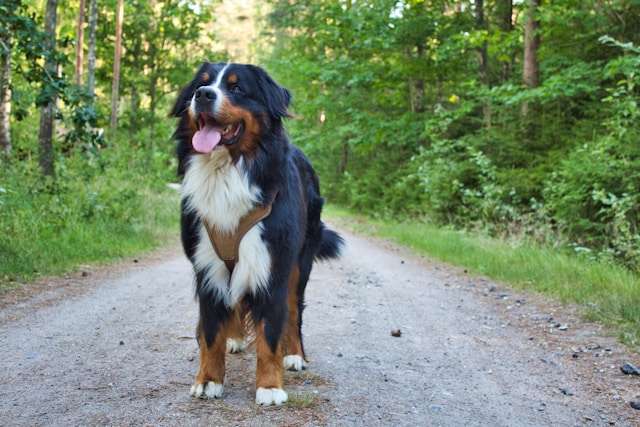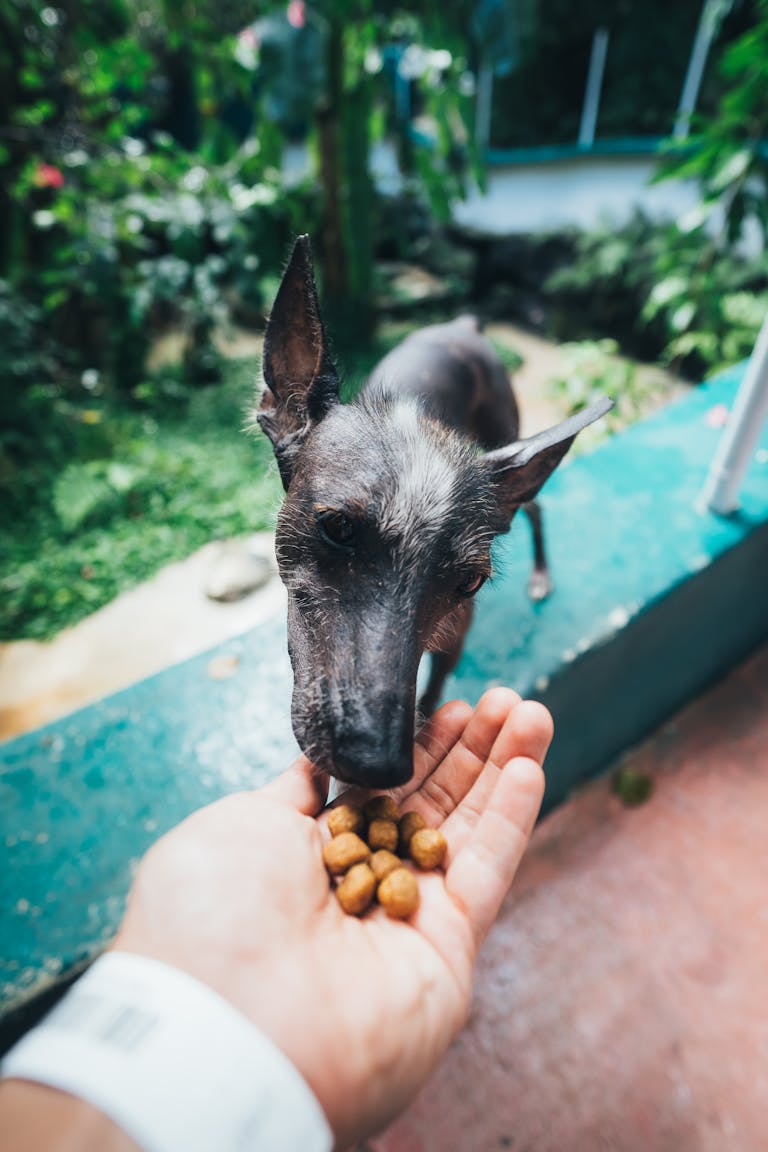How to Spot Nutritional Deficiencies in Your Dog

How to Spot Nutritional Deficiencies in Your Dog. Your dog can’t tell you when something’s wrong, but their body often does. Nutritional deficiencies are more common than you’d think and can affect everything from their energy levels to their coat’s shine.
By recognizing key signs, such as lethargy, unusual eating habits, or skin issues, you can address potential problems before they escalate. Want to explore more about canine nutrition? Check out these nutrition tips to keep your furry friend healthy.
Table of Contents
Understanding the Nutritional Needs of Dogs
Every dog is unique, but their nutritional needs often share common ground. Meeting these needs is key to their health, happiness, and longevity. Let’s dive into what your furry friend requires, from macronutrients to micronutrients.
Macronutrients: Proteins, Fats, and Carbohydrates
Macronutrients are the foundation of a healthy canine diet. Think of them as the building blocks that fuel their energy and bodily functions. Here’s a closer look at each:
- Proteins are vital for muscle development, tissue repair, and immune health. Deficiencies can lead to weight loss, muscle atrophy, and a weak immune system. Ensure your dog’s food includes
protein sources like chicken, fish, or beef. For a more detailed guide, check out best dog food for every breed.
Fats: Fats are not just about calories; they are crucial in brain development, skin health, and maintaining a shiny coat. Signs of fat deficiency include dry skin, dandruff, and low energy. Healthy fats like omega-3s can be found in fish oil or flaxseeds.
- Carbohydrates: Carbohydrates are not as emphasized as proteins and fats, but carbs are essential for high-energy activities. A lack of carbs may result in fatigue and weight loss. Good sources include sweet potatoes, oats, and rice.
If you’re curious about dietary needs for specific breeds, this dog nutrition guide can offer tailored advice.
Micronutrients: Vitamins and Minerals
Micronutrients might be needed in smaller amounts, but they significantly impact your dog’s health. Here’s why:
Vitamins: A, D, E, and K play vision, bone health, and immunity roles. Deficiencies in vitamins can lead to issues like night blindness or weakened bones. For example, vitamin E helps protect cells from damage, while lacking it might result in muscle weakness or skin problems.
- Minerals: Minerals calcium, phosphorus, and zinc support bones, teeth, and skin. A calcium deficiency, for instance, can lead to brittle bones and poor growth in puppies. Consult resources like nutrition basics for dogs for more details on how to meet these needs.
Understanding these core nutrients makes spotting problems much more manageable. Keep an eye on your dog’s physical cues and energy levels; they’ll often reveal more than words ever could.
Signs of Nutritional Deficiencies
Dogs can’t tell us when they lack nutrients, but their bodies speak volumes. From coat changes to unusual behaviors, your furry friend shows visible signs when something’s off with their diet. Recognizing these clues can help you act before things get serious. Let’s explore how your dog’s body reveals nutritional challenges.
Changes in Coat Condition
A dog’s coat is a window into their overall health. Nutritional deficiencies often manifest with noticeable differences in their fur.
- Dull or Brittle Fur: Without enough essential nutrients like omega-3 fatty acids or biotin, your dog’s coat may lose its luster or
become brittle. A lack of fats or vitamins often leads to a rough, lackluster appearance. For more insight into how diet impacts coat health, check out Are Dogs Carnivores Or Omnivores?
Excessive Shedding: While shedding can be seasonal, an increase could point to zinc or protein deficiencies. Addressing these quickly can prevent more severe skin issues.
Weight Fluctuations
Unexpected weight changes are another red flag. Whether they’re tipping the scale on the heavy or light side, diet may be the cause.
Weight Loss: If your dog seems to be losing weight without a change in activity, they may be missing essential calories or proteins in their diet. Sudden weight loss calls for a deeper look into their food and overall health.
- Weight Gain: Surprising weight gain could indicate your dog isn’t getting enough energy-burning nutrients or is consuming low-quality carbs. Like those highlighted in Best Dog Food for Sporting Breeds, a balanced diet can help maintain an ideal weight.
Behavioral Changes
Your dog’s energy and behavior often mirror their physical health. Subtle changes might be your first hint of nutrient-related issues.
- Lethargy: Feeling sluggish? Dogs do, too! A lack of iron or B vitamins could leave them low energy and uninterested in playtime. Have you noticed any unusual fatigue or disinterest in their favorite activities?
Hyperactivity or Unusually Aggressive Behavior: Believe it or not, some imbalances, like an overload of simple sugars, can make your dog hyperactive or moody. A well-rounded diet keeps them calm and happy.
Digestive Issues
A happy stomach equals a happy pet, but nutritional gaps can wreak havoc on your dog’s digestion.
Diarrhea or Constipation: Poorly balanced meals might lack fiber or hydration, triggering loose stools or difficulty pooping. Keeping an eye on their bowel habits could save them from serious trouble.
- Gas and Bloating: Excess gas or frequent bloating isn’t just unpleasant—it could signal that their food isn’t digesting properly, possibly due to a lack of digestive enzymes or key nutrients. Are you curious
to know more about digestion and nutrition? Learn about it on Nutrition, Skin, and Dogs.
Your dog’s well-being is tied to their diet. Please pay attention to these physical and behavioral signs and ensure their meals are tailored to meet their body’s needs. Addressing deficiencies early will help your best friend stay healthy and happy.
Common Nutritional Deficiencies in Dogs
Nutritional deficiencies in dogs can lead to subtle and not-so-subtle health issues that often go unnoticed until they escalate. Knowing what to watch for can help keep your furry friend healthy and thriving. Here are some of the most common deficiencies and their telltale signs.
Calcium and Phosphorus Deficiency
Calcium and phosphorus are essential for strong bones and teeth. A lack of these minerals can result in skeletal problems that might worsen over time.
- Symptoms: Dogs with a deficiency may show signs of brittle bones, limping, or difficulty standing. Puppies can suffer from stunted growth or bowed legs.
- Causes: Poor-quality diets or imbalanced homemade meals are common culprits. Always ensure your dog’s diet includes appropriate amounts of calcium and phosphorus. Learn more about the risks of imbalances from Are Homemade Diets For Dogs Safe And Worth Trying?
Left unchecked, these deficiencies may lead to fractures, dental issues, or even metabolic bone disease.
Vitamin A Deficiency
Vitamin A is crucial for your dog’s vision, skin, and immune system. Without enough of this vital nutrient, your pet may face several health challenges.
- Symptoms: Dogs deficient in Vitamin A often experience poor vision, especially at night, dry skin, or rough patches of fur. In severe cases, immune function can weaken, increasing their infection vulnerability.
- Effects: Vision problems and skin irritation may appear like isolated issues but could be tied to their diet. Check out this blog on dog nutritional signs for a deeper dive into recognizing symptoms.
Vitamin A isn’t just about eyesight—it’s a nutrient that helps your dog thrive from the inside out.
Protein Deficiency
Proteins are the building blocks of your dog’s body. They support muscle growth, repair tissues, and provide energy. When protein levels are low, the impact on your pet’s health can be profound.
- Symptoms: Weight loss, muscle wasting, and poor coat quality are clear signs. Dogs may also seem sluggish or lethargic.
- Implications: Beyond the visible signs, protein deficiency can weaken your dog’s immune system. If you’re curious about enhancing a breed-specific diet, this dog food guide for active breeds is a must-read.
Imagine trying to function without fuel—this happens when your dog doesn’t get enough protein.
Omega Fatty Acids Deficiency
Omega-3 and Omega-6 fatty acids are key for maintaining healthy skin and a shiny coat. These fats also play a role in brain function and joint health.
- Symptoms: Dry, flaky skin, excessive shedding, or a dull coat might indicate a deficiency. In some cases, you may notice increased itching or irritation.
- Effects: Without adequate Omega-3 and Omega-6, dogs may suffer from chronic skin conditions or inflammation. Are you curious about how certain habits reflect nutrient gaps? Check out Why Do Dogs Eat Grass? for insights that could apply to your pet.
Omega fatty acids are like the oil that keeps a machine running smoothly. Without them, your dog’s skin and coat can look like they’ve rusted out.
Recognizing these deficiencies is the first step to ensuring your dog gets the necessary nutrients. By addressing these issues, you’ll not only improve their health but also their quality of life. Always consult with your veterinarian or a pet nutrition expert for tailored advice.
How to Prevent Nutritional Deficiencies
Preventing nutritional deficiencies in your dog is all about balance, consistency, and proactive care. It starts with choosing the right food, frequent health check-ups, and staying attuned to changes in their body and behavior. Here’s how to ensure your furry friend gets everything they need to thrive.
Choosing Quality Dog Food
Not all dog foods are created equal, and selecting the right one can be daunting. Start by reading the ingredient list on food labels and look for high-quality protein sources like chicken, beef, or fish. A good rule of thumb: if you wouldn’t eat it, don’t feed it to your dog.
Consider your dog’s needs based on age, size, breed, and activity level. For example, puppies need nutrient-dense meals for growth, while seniors may require lower-calorie options. Brands with AAFCO (Association of American Feed Control Officials) approval meet basic nutritional standards, so always check for this label.
Want a tailored recommendation for your dog’s breed? Visit our comprehensive guide on the best dog food for every breed.

Consulting with a Veterinarian
Your veterinarian is your best ally regarding your dog’s health. They can recommend diets tailored to specific issues like allergies, weight management, or breed-specific requirements. Regular check-ups also help detect early signs of deficiencies before they snowball into more significant problems.
Have you considered discussing supplements? Not all dogs need them, but adding omega fatty acids or glucosamine—under your vet’s guidance—may address gaps in their diet. If you’re feeding homemade meals, consult your vet to ensure they meet all nutritional standards. Additional insights are outlined in this guide on homemade dog diets.
Monitoring Dog Health Regularly
A keen eye on your dog’s habits and appearance can provide early warnings of nutritional gaps. Regularly check:
- Weight: Sudden drops or gains might signal an imbalance.
- Coat Condition: A shiny, smooth coat usually means they get enough essential fats and nutrients.
- Energy Levels: Dogs should be energetic and happy. Sluggish behavior could suggest a lack of essential vitamins.
Tracking these signs is like reading a map: it guides you toward solutions if something feels off. For example, a dull coat might need more omega-3 fatty acids. You can dive deeper into how nutrition affects your dog’s skin and coat in this helpful guide.
By incorporating these steps into your routine, you’ll prevent deficiencies and give your dog the healthiest life possible.
When to See a Veterinarian
Sometimes, your dog’s health issues go beyond what diet can fix. Recognizing when professional help is needed ensures your furry friend gets the care they deserve. Nutritional deficiencies are serious, but so are underlying conditions that might mask dietary concerns. Here’s when a trip to the vet is a must.
Persistent Symptoms
Specific symptoms shouldn’t be ignored and require immediate attention from a veterinarian.
- Lethargy or Weakness: If your dog is exhausted
for more than a day or two, it’s time to call your vet. Lethargy could stem from something as simple as a nutrient deficiency—or something more severe like an underlying illness. For more insight, check out 10 Signs You Need to See a Veterinarian.
- Sudden Weight Changes: Unexplained weight loss or gain is a warning sign. Weight fluctuations can be tied to poor diet but
might also indicate thyroid issues, metabolic imbalances, or organ problems.
Digestive Issues: Persistent diarrhea, constipation, or vomiting should never be ignored. While occasional tummy troubles may resolve with dietary adjustments, ongoing symptoms necessitate a professional check-up.
- Skin Problems: Chronic itching, redness, or hair loss could signal allergies, nutrient gaps, or infections. See a veterinarian for proper diagnosis and treatment if your dog’s skin isn’t improving. Brush up on skin-related nutritional signs in this detailed article.
Waiting too long can escalate minor issues into primary conditions. Always trust your gut when your dog’s behavior or health seems off.
When Dietary Changes Fail
You’ve tweaked the diet and switched up the food, yet your dog’s health remains unchanged. What now?
No Improvement Over Time: If you’ve addressed possible deficiencies—like adding omega-3s for a dull coat or adjusting protein levels for energy—and still see no progress, there could be an underlying medical issue. This is when you need a vet’s expertise. Learn when to ask your vet’s opinion.
Trouble Digesting Foods: New diets should bring improvements, not worsen symptoms. If switching food leads to more frequent vomiting, diarrhea, or gassiness, it’s worth assessing whether your dog has food intolerances or allergies.
Recurring Symptoms: Keeping track of repeating symptoms like ear infections, hot spots, or intermittent vomiting can reveal patterns. These may point to deeper issues that require diagnostic testing.
Vets are your partner in health, not a last resort. They use a combination of tests, like bloodwork or allergy panels, to pinpoint causes beyond nutritional gaps. Take action when dietary fixes aren’t enough.
Knowing the right time to involve a veterinarian addresses deficiencies sooner and safeguards your dog’s quality of life. Your furry friend depends on you to make informed decisions.
Frequently Asked Questions About Nutritional Deficiencies in Dogs
Regarding your dog’s health, getting clarity on common questions can be incredibly helpful. Below, we address some frequently asked questions to help you better understand and address nutritional deficiencies in your furry friend.
What Are the Common Signs of Nutritional Deficiencies in Dogs?
Recognizing the symptoms of nutritional deficiencies is key to acting quickly. Look out for:
Skin and Coat Issues: These can range from dull, brittle fur to excessive shedding or dry skin. Omega-3 fatty acids and biotin are essential for maintaining a healthy coat. Symptoms like these are discussed in detail in this blog about dog skin and nutrition.
Digestive Problems: Persistent vomiting, diarrhea, or noticeable bloating can highlight nutritional imbalances.
Behavioral Changes: Dogs lacking nutrients like B vitamins may show low energy or act overly tired.
Monitor these issues consistently, as they often provide the earliest clues about your dog’s diet.
How Can I Ensure My Dog Gets a Balanced Diet?
Feeding your dog the right diet involves understanding their needs based on factors such as breed, life stage, and activity level. High-quality, well-balanced commercial dog foods often meet these needs, but not all are created equal. This article on choosing dog food nutrients provides a helpful starting point to ensure your pet is on the right track.
Alternatively, if you prefer homemade meals, you must consult a vet or a canine nutritionist to ensure all macronutrient and micronutrient requirements are met.
Can I Address Nutritional Deficiencies With Supplements?
While a well-thought-out diet often prevents deficiencies, some circumstances call for additional supplementation:
- Omega Fatty Acids: Help with skin conditions and joint health.
- Calcium and Phosphorus: Essential for bone development in puppies and seniors.
- Probiotics: Promote better digestion and nutrient absorption.
However, always consult your veterinarian before incorporating supplements into your dog’s routine—over-supplementation can lead to other health concerns.
What Should I Do if I Suspect a Deficiency?
If you notice warning signs like sudden weight changes, behavioral shifts, or ongoing digestive issues, it’s time to act. Start by evaluating their current diet and transitioning to a nutritionally appropriate one. For more detailed advice on recognizing and treating deficiencies, visit this comprehensive guide.
If symptoms persist, seek advice from your veterinarian right away. Sometimes, deficiencies can be rooted in health conditions that need further investigation.
How Do I Spot Nutritional Needs for Specific Breeds?
Nutritional requirements often vary between breeds. Larger breeds like Labradors need diets rich in joint-supporting nutrients like glucosamine, while smaller breeds like Poodles benefit from portion control due to their calorie needs. For a breed-specific breakdown of nutritional needs, explore this Labrador Retriever care guide.
Understanding your dog’s breed and individual needs will go a long way in creating their ideal diet. Regular vet visits can help fine-tune their nutrition for optimal health.
Detections and solutions often start with your observation. Never hesitate to ask questions and consult trusted resources regarding your dog’s well-being!
Conclusion
Spotting nutritional deficiencies in your dog is about observing and understanding their needs. Early signs, like coat, weight, or behavior changes, are often the first indicators. Address these issues promptly to support their overall health and quality of life.
Choose a balanced diet tailored to their unique needs. Regular vet check-ups and monitoring ensure deficiencies are caught before becoming serious. Feeding your dog well is one of the best ways to give them a happy, healthy life.
For guidance on specific diets for dogs with health issues, visit Dog Food for Health Issues. Don’t wait—small changes today can make a big difference for your furry friend tomorrow.






